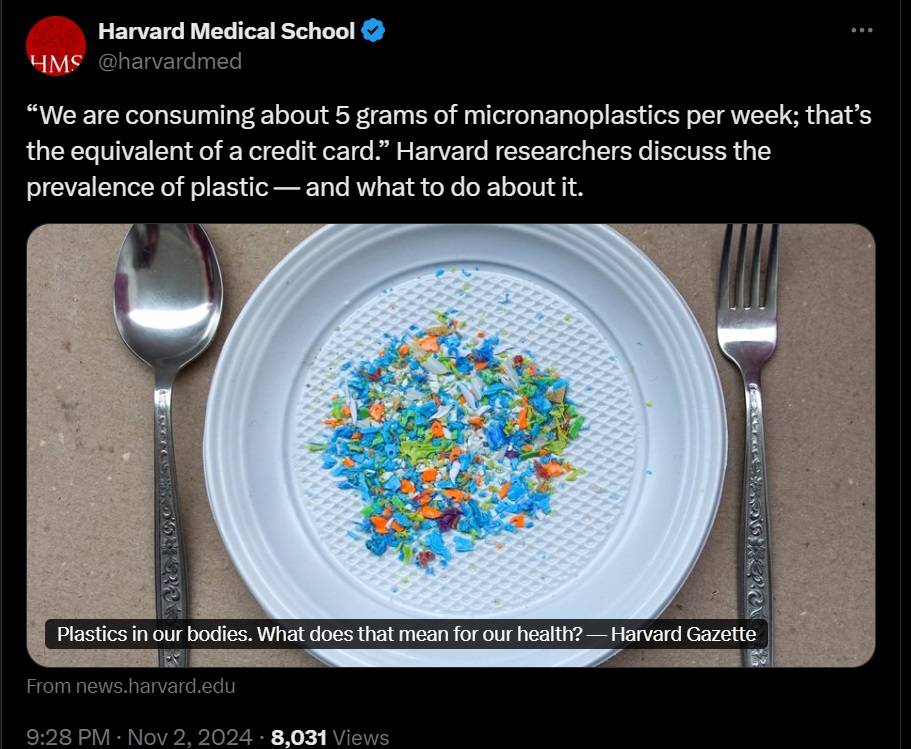We Ingest Large Amount Of Plastic, Says Harvard Medical School Study
Harvard researchers have revealed that we are ingesting a high amount of plastic every day which is a serious threat to human health. They also reveal how to minimize the exposure.
Study in US: Harvard Medical School researchers have revealed that plastic is not only a problem to the environment but it is also invading our bodies continuously. We are consuming it every day.
Philip Demokritou, the founding director of the Environmental Health Nanoscience Laboratory and the Center for Nanotechnology and Nanotoxicology at the School of Public Health said, “Ingestion is the primary route of exposure, and we are consuming about 5 grams of micronanoplastics per week; that’s the equivalent of a credit card."
Don Ingber, the founding director of the Wyss Institute and a professor at the School of Engineering and Medical School has also echoed this and said that humans are “drowning” in plastic exposure. These plastics come inside the body from wildfire smoke and the synthetic clothes we wear. Researchers have found that plastic is present nearly in every bodily organ. It is not possible to escape them and what is more concerning is that our body can't fully break these plastics down.
“These particles … are what we call sustained release vehicles, meaning they’re just sitting there, and every day they’re releasing a little bit for the rest of the lifetime of those cells in your gut or other organs. That makes [them] even more dangerous," added Ingber.
More Research Needed On Plastic Ingestion By Human: Scientist
Mary Johnson, a research scientist in the Environmental Health Department of the School of Public Health has said that until biodegradable alternatives are found, the consumers should try to minimize their use of plastics. The scientist also said that more research is required to find out who is at the highest risk of plastic ingestion.
"All consumers should be trying to minimize their use of plastics — from what they wear to how they furnish their homes to how they prepare food — until better, biodegradable alternatives can be found. As a consumer I feel like I can’t wait; I want to minimize my own exposure,” Johnson said.
Read more:

With over 11 years of dedicated experience in the field of Study Abroad consulting and writing, Pallavi Pathak stands as a seasoned expert in providing compelling news articles and informative pieces tailored to the... Read Full Bio


